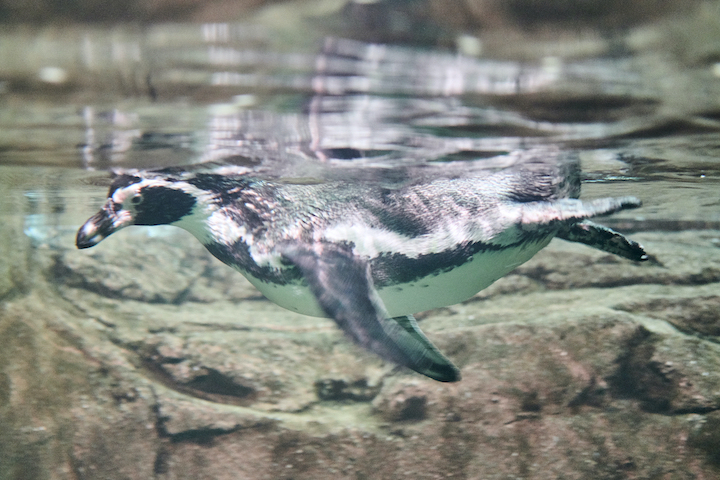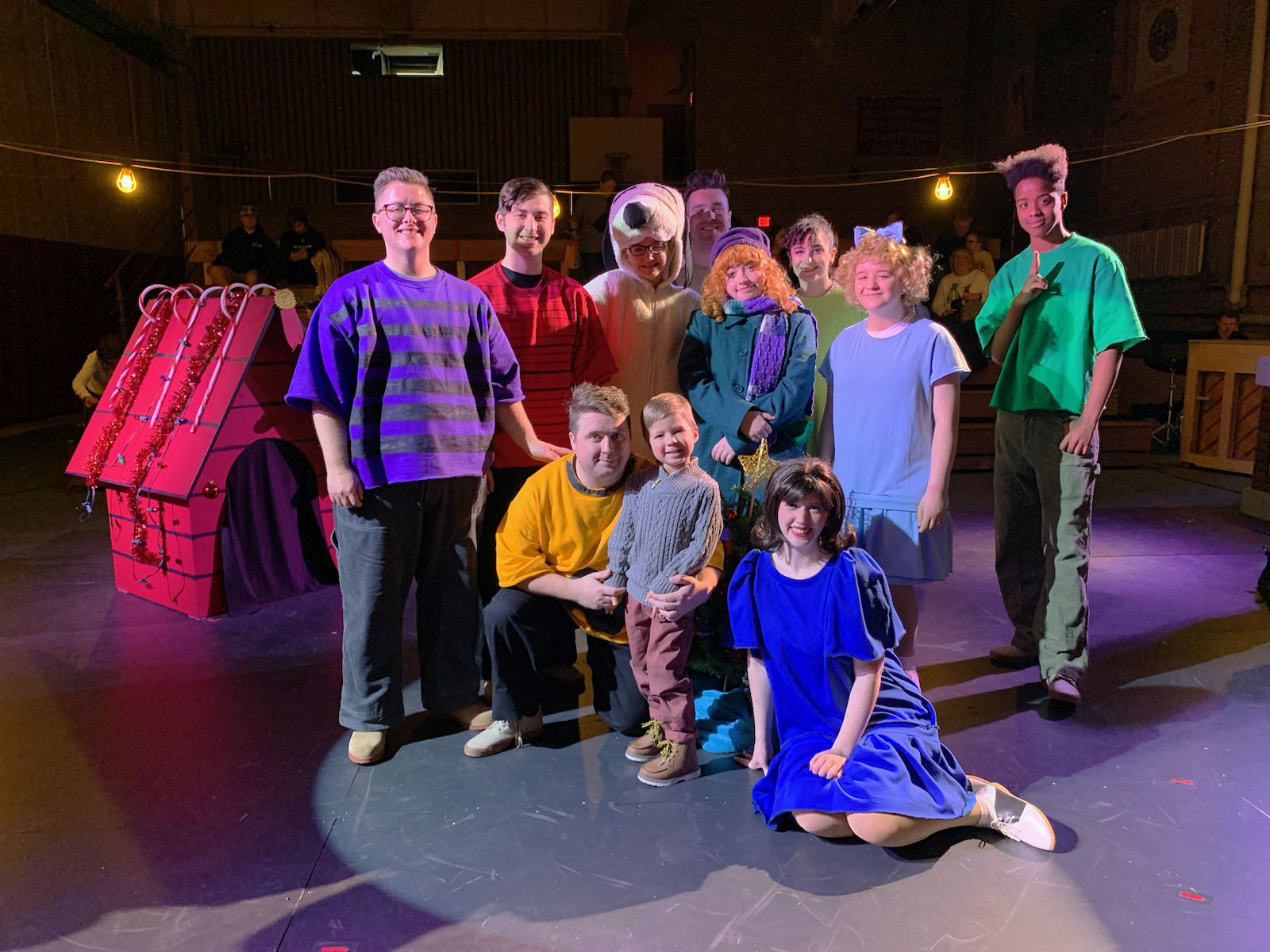Featured News - Current News - Archived News - News Categories
Performer working on new songs, memoir
By Joshua Maloni
GM/Managing Editor
Sophie B. Hawkins is in a good place these days.
The singer/songwriter/multi-instrumentalist has found a creative groove – and it’s come at a perfect time. She is celebrating the 30th anniversary of her Platinum-selling debut album, “Tongues and Tails,” and the smash hit “Damn, I Wish I Was Your Lover.” Hawkins also is touring with her contemporary, Paula Cole, whose seminal “This Fire” (and hits “Where Have All the Cowboys Gone?” and “I Don’t Want to Wait”) commemorated 25 years in 2021.
Hawkins, who owns the longest-running single in Billboard adult contemporary chart history (“As I Lay Me Down”) – and received rave reviews for her turn as Janis Joplin in the national tour of “Room 105” – shared more in this edited Q&A.
Q: You know, journalists are supposed to ease into interviews, but I've got to ask you this question. Just looking at your website and at some of the talking points, it seems to me that, right now, from an artistic standpoint, you are in a place where you are very content. Not complacent, certainly, but very content artistically and creatively.
I'm wondering if that's the case.
Sophie B. Hawkins: Yeah, I'm interested that you got that, because I didn't know I was projecting that. But I actually – I feel happy. And I feel so clear. Like, when I get up and I'm working on my different projects, I don't feel stressed and confused about what I'm doing when.
When I'm going out to do a show, and I've practiced and rehearsed for that show, I know what I'm doing. When I work on my memoir, I know exactly what I'm doing. And then when I switch gears and I go into my musical, I feel “OK, I know exactly what I’m doing.” And I actually like moving around and being very, very focused, and then moving off on to something then coming back to it.
I've never been able to do this in my life. And I honestly think that having two children, and going through COVID, has trained me to be able to be really happy completing things. It's not linear anymore. It's like everything has its own lane, and I keep switching lanes – but not neurotically. And it keeps me fresh and happy. I don't get bogged down by, I don’t know, just the heaviness of youth. I have the levity of age!
Q: I’ve talked to a lot of your contemporaries, and they're sort of in a similar place as you are: They appreciate the fact that fame – if you want to call it that – helped them get their foot in the door. But they did not really enjoy the whole process of fame and being famous. They would much rather be able to play when they want to play, and where they want to play, and create music for themselves and for their fans – and not have to worry about the business side of things.
Talking about lanes, is that a more comfortable lane to be in?
Sophie B. Hawkins: No; I might not totally agree, because there was something amazing about having the industry be selective, competitive and powerful – and now it's dispersed.
And I feel like, as many of the great artists that are still around, and still making music, and like we call it this content way. There's also just so much that is clogging up the pores, basically.
So, I feel two ways about it. And I know that I'm very unpopular to say this, but there is a way in which the very corrupt industry made certain artists get better, and certain artists who really weren't going to be that good, anyway, just kind of fall away.
And now everything goes, and it's just … You know, Paula Cole said it beautifully. She said she listens to the giants. And I understand. But, you know, the giants were made giants in an industry that was like a pressure cooker. And now there's no pressure cooker. It’s almost like there's no industry. It's just where can you get money to go on tour.
So, I would say that both are true. I would be happy if I was still being pushed, because I push myself that way. And then the people who have never been able to have that chance to be signed and have the big push from a label, that's sad, because it's really incredible.
Yes, it was hard. Of course, it was hard; but it was also incredibly great.
WATCH:
Q: You mentioned Paula Cole and, of course, you're out touring with her, and we're going to see the two of you this weekend. I'm wondering how that collaboration came to be.
Sophie B. Hawkins: Oh, my god, that came from my brilliant agent, Kath Buckell, up at Paladin.
You know, I'm very lucky. Paula Cole – I don't know how it happened, but Kath put it together. And I'm so grateful, because we are so well-suited. Because this is the interesting thing: We both came out at a similar time. But we were always so different. We're still so different, and so complimentary.
Q: Tell me about the stage show. What is the presentation?
Sophie B. Hawkins: OK, so for me, I have me; and I have Seth Glier, who's a great artist in his own right. He's playing keyboards and guitar, and he has a beautiful singing voice. And then I have a drummer, Rob Griffith, who is fantastic. So, it's just me and them. And then I, of course, play the piano and guitar, and banjo and drums.
So, us three – it's pretty powerful, though. It's a very full sound. And one thing I can say about us being three people is that, whereas when you have a lot more instruments – like the bass and everything – you can't hear the details of what the drummer is doing. And it’s incredible to hear Rob’s playing, because he has so much space in his sonic range.
And I would say the same thing about my voice. I've always loved when there's less musicians on stage. Not that we don't rock out, because we do. But my voice is competed with by all these synthesizers and stuff. And it's so nice, because it cuts, and people can get the inflections more.
So, that’s me. And then Paula has, I think, a slightly bigger band by one person. But again, her voice is so powerful, and her playing is so excellent.
So, I would say the people coming in will probably go, “Oh my god, these are great musicians.”
WATCH:
Q: Oh, undoubtedly. And I know that you are also working on new material. I don't know if you're at a point where you're sharing any of that in your shows or not. You have quite an extensive catalogue, of course. How do you make the determination between what songs you're going to play, and balancing the old and the new?
Sophie B. Hawkins: Well, it was easy this time, because it's the 30th anniversary of “Tongues and Tails.” So, I’m playing as much “Tongues and Tails” as I think people would want to hear. And I’m balancing it with a few of the hits, like from “Whaler” and from “Timbre.” You know, songs that were on TV shows, that still play at the drugstore.
And then, I have four new songs in there, and the four new songs are being received wonderfully.
Q: You mentioned “Tongues and Tails.” And again, speaking of your contemporaries, a lot of them would just be happy to tour on their laurels and not worry about making new music. What excites you, what challenges you, what motivates you to continue creating new content at this point in your career?
Sophie B. Hawkins: Oh, well, you know what, I would say it's at this point in my life, because all I ever wanted to be, really, was an artist, and that's what motivated me to keep creating.
You know, when I talked about the musical and the new songs, I cannot survive without creating hard emotions, realizations. The music, the songs, are my teachers – they get me through everything. And whenever I am going to get through a major growth period, emotionally and spiritually, it's always the songs that define it, that pull me through it.
So, I would do it even if no one came to see me. I would still write songs – and I don't even know if I would even try to get my songs out there. I would write them just because it's so important for me to go through the process of creating.
Q: You mentioned the balance between that and “Tongues and Tails.” When you look back on “Tongues and Tails,” what made that special – and did you know that had the potential to be as successful as it was?
Sophie B. Hawkins: Well, that's a good question. Because I'm working on this memoir, so I'm looking through my old journals. And I have journals you know, from, like, 10 years up to “Tongues and Tails.” And there’s parts where I think I definitely affirmed and asserted that I was going to be making the kind of music I was, but I had no reason to think that. I just decided that that was going to be so. I even decided way before “Tongues and Tails” that I was going to work with Omar Hakim, and different musicians who are on “Tongues and Tails.” There's no reason I should have known any of that. But that just speaks to, I guess, creative visualization.
I knew “Tongues and Tails” was going to be a great album, because I love the songs. I had vetted the songs. Oh, I had written hundreds and hundreds of songs. So, the 12 that we picked, at that time – harkening back to the things I said before – I was courted by seven labels. Now, seven labels after, you know, 10 years of being nothing and no one, and never even getting a publishing deal. But then my time had come.
So, I knew that the songs were resonating, because it was such an energy around these demo tapes that I had made. I thought that record was going to be special, and I stressed that. I cast every musician; I chose the musicians. Every detail was attended to, and the some of the vocals are from the demos.
It was such a process of fighting for what I knew was right, and sort of teaching people that this is what's gonna work – and that won't work, but this will work. It wasn't confidence. It was absolute adherence to this vision that had taken a long time to make, and that I knew was possible.
Q: There's so many things that go into making someone successful. Of course, talent is a huge part. Some of it is luck. Some of it also is marketing.
This may be a silly question, but even just looking at how your name appears on this Zoom, it's Sophie Hawkins. Who made the determination for you to be Sophie B. Hawkins? It just is such an iconic name, to go with an iconic voice – and it just seems like such a brilliant marketing strategy to me.
Sophie B. Hawkins: Well, that's really interesting. Now, first of all, the person who set up my Zoom, set up Sophie Hawkins; so that was a mistake (laughs).
Sophie B. Hawkins – I thought of that when I was like in third grade. When I was about in third grade, I thought of Sophie B. Hawkins. And my sister and I were wondering if I didn't get that because my mother used her middle name in her writing, in her novels. You know, she was Joan Winthrop Cross. So, maybe I just thought that's what you did when you became a well-known artist?
Q: I just think it's one more thing that distinguishes you from the pack. I mean, you would have been successful with your talent, but I think that was a really smart play on your name.
Alright, let me ask you another question. And this relates to “Damn, I Wish I Was Your Lover,” which I think is unquestionably one of the best songs of the ’90s.
The first time I remember hearing that song, I was on vacation. I was in Connecticut. I was watching “Beverly Hills, 90210,” which would become my favorite show of all time. And in my very favorite episode of my very favorite show, Kelly and Dylan are on the beach, and they determine they're going to be more than friends.
What made that scene perfect was having your song in the background. And now, I watch that episode (on streaming or DVD), and your song is not in that episode anymore. So, what happened?
Sophie B. Hawkins: What? I don't know what happened. How dare!
Q: I know, right? It was such a perfect pairing.
Sophie B. Hawkins: It's not my doing. I didn't even know this was going to be your question.
Well, you should say that on the internet. Maybe somebody will have the answer.
Q: I should. I should check and find out what's going on here. That episode does not resonate as much with audiences without your song. Your song was such a key part to that scene.
Sophie B. Hawkins: Oh, this sounds like a really fun (question). I mean, I'm so lousy at social media, but this sounds like a really fun campaign to get my song back in that scene.
Q: All right, we're gonna do it. We're gonna get the song back included on the show.
Sophie B. Hawkins: (Laughs) That would be great.
(NOTE: Writer Shari Weiss shed some light on this subject HERE.)
WATCH:
Q: That song was, to me, one of the defining songs of the ’90s, as so much of that album was. But certainly, time has passed since then. And like you said, there was the pandemic; of course, you've had your children, who are wonderful; and so many things have happened in your life, good and bad, since then. I'm sure it affects your approach to singing and to being on stage.
How do you approach a song like that, or the other songs on that album, in 2022, versus 30 years ago when you first started singing them? What is the mindset? What is the approach? Is it the same? Is it different? How do you get into those songs?
Sophie B. Hawkins: Oh, how do I get into them – I get into the songs really easily, because the songs are – well, you pointed it out – you think “Damn’s” a great song. The lyrics are great, the melodies are challenging to sing. The chords are great.
Everything about the songs is really beckoning to me. I never will grow out of those songs. It's all I can do to grow into them. They're really sort of evolved, all of them.
Sophie B. Hawkins and Paula Cole perform Saturday, July 30, at the Historic Riviera Theatre in North Tonawanda. For more information, or for tickets, visit https://rivieratheatre.org/upcoming-events/.





























